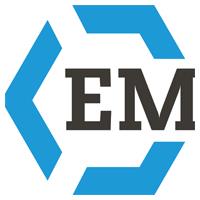In short
- Sustainability and circularity are hot topics at EuroMouldings in Twente, producing jerrycans, bottles and other packaging. Engineering and Quality Assurance Manager Erwin Wevers deals with them daily.
- The company is already taking important steps and closely follows all developments in the plastic industry, to achieve ‘100 per cent circularity’ by 2050.
Global Goal

“We collect the plastic chunks that are left after the production process. This is around two containers a month, or ten silos per year. We used to sell part of it to other companies so they could make products from it, such as crates and pallets. We have been able to convert it into clean grist and granulate though, since last year, so we can reuse it in our own process.”
Recycling is currently only done mechanically”, says Wevers. “That means that recycled packages are reused after they have been cleaned and ground up. This is done by our sister company, Sanderman Cleaning Group Hengelo, a part of the AST-family for two years. We joined the AST family as well, a year earlier. In other words, we can use the used bottles and jerrycans again as raw materials.
Related article
However, all this is easier said than done because customers naturally want their own recognisable packaging colours. Recycled plastic has a grey colour. The quality of the packaging must also be consistent. “This is one of the challenges we now face with the recycled raw materials we purchase externally”, says Wevers. The smell of recycled plastic can also be a problem. “Packaging that has been used for oil will absorb that smell, and it is released when the plastic is converted. The same applies to shampoo and detergent bottles, which will have a soapy smell. This means that these two types of plastic cannot be used for just anything. The ventilation on the work floor also has to be changed. Working with those smells might be harmless, but it is not pleasant.”
Another option is reusing the packaging. Customers from EuroMouldings would then have to ask their consumers to return their packaging after use so that they can refill their empty bottles and jerrycans themselves after they have been cleaned by our sister company Sanderman. “This is called a closed loop”, says Wevers. “We are actively developing this idea within the AST group.”
Related article
Recycling in a chemical way can also be used as additional recycling in the future. Through pyrolysis, for example. “This is also used in the wood industry, where wood is converted into gas. This means that, in our case, we could use a chemical process to transform the reclaimed materials into the original raw material for plastic, with which we can make all the types of packaging we need for our customers.”
There is also a completely separate branch. This branch is still in its early stages, but it will take off in the future: producing plastic from ‘new’ raw materials; bioplastic. Think of packaging with plastic made from sugar cane, beets, or even corn.
There is still a lot of work to be done before we get to this point, though: it is essential to make money with your business. “We need to have some money left over at the end of the line. Recycling and circularity are important, and they should always be topics on our agendas, but people often forget that it takes a lot of money, a lot of effort and a lot of adjustments to get there. We need to get rid of the collective idea that recycled materials are cheaper than new materials. This is not the case. It is important, but not easy.”
Contact information

Ambachtsweg 3
7442 CS Nijverdal (0)548 61 10 07 info@www.euromouldings.com https://twente.com/organisaties/euromouldings
Global Goals

Date: 4 February 2021 |
Source of tekst: EuroMouldings |
Author: Maaike Thüss





